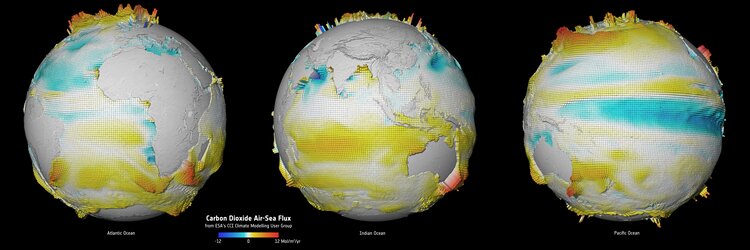Accept all cookies Accept only essential cookies See our Cookie Notice

About ESA
The European Space Agency (ESA) is Europe’s gateway to space. Its mission is to shape the development of Europe’s space capability and ensure that investment in space continues to deliver benefits to the citizens of Europe and the world.
Highlights
ESA - United space in Europe
This is ESA ESA facts Member States & Cooperating States Funding Director General Top management For Member State Delegations European vision European Space Policy ESA & EU Space Councils Responsibility & Sustainability Annual Report Calendar of meetings Corporate newsEstablishments & sites
ESA Headquarters ESA ESTEC ESA ESOC ESA ESRIN ESA EAC ESA ESAC Europe's Spaceport ESA ESEC ESA ECSAT Brussels Office Washington OfficeWorking with ESA
Business with ESA ESA Commercialisation Gateway Law at ESA Careers Cyber resilience at ESA IT at ESA Newsroom Partnerships Merchandising Licence Education Open Space Innovation Platform Integrity and Reporting Administrative Tribunal Health and SafetyMore about ESA
History ESA Historical Archives Exhibitions Publications Art & Culture ESA Merchandise Kids Diversity ESA Brand CentreLatest
Space in Member States
Find out more about space activities in our 23 Member States, and understand how ESA works together with their national agencies, institutions and organisations.
Science & Exploration
Exploring our Solar System and unlocking the secrets of the Universe
Go to topicAstronauts
Missions
Juice Euclid Webb Solar Orbiter BepiColombo Gaia ExoMars Cheops Exoplanet missions More missionsActivities
International Space Station Orion service module Gateway Concordia Caves & Pangaea BenefitsLatest
Space Safety
Protecting life and infrastructure on Earth and in orbit
Go to topicAsteroids
Asteroids and Planetary Defence Asteroid danger explained Flyeye telescope: asteroid detection Hera mission: asteroid deflection Near-Earth Object Coordination CentreSpace junk
About space debris Space debris by the numbers Space Environment Report In space refuelling, refurbishing and removingSafety from space
Clean Space ecodesign Zero Debris Technologies Space for Earth Supporting Sustainable DevelopmentLatest
Applications
Using space to benefit citizens and meet future challenges on Earth
Go to topicObserving the Earth
Observing the Earth Future EO Copernicus Meteorology Space for our climate Satellite missionsCommercialisation
ESA Commercialisation Gateway Open Space Innovation Platform Business Incubation ESA Space SolutionsLatest
Enabling & Support
Making space accessible and developing the technologies for the future
Go to topicBuilding missions
Space Engineering and Technology Test centre Laboratories Concurrent Design Facility Preparing for the future Shaping the Future Discovery and Preparation Advanced Concepts TeamSpace transportation
Space Transportation Ariane Vega Space Rider Future space transportation Boost! Europe's Spaceport Launches from Europe's Spaceport from 2012Latest

A sweet solution to carbon dioxide
Thank you for liking
You have already liked this page, you can only like it once!
The way we grow and consume food currently accounts for a quarter of global carbon emissions and is a major driver of biodiversity loss.
Microorganisms such as bacteria, yeast and microalgae can be used as an alternative way to produce food ingredients for humans. But the substances required to grow these microorganisms – sugars, organic acids and proteins – are also currently produced in ways that contribute to biodiversity loss.
The SweetAir project, led by a team from Wageningen University in the Netherlands and funded by ESA Discovery, is building on technologies and lessons learned from human spaceflight to directly convert carbon dioxide from the atmosphere into food ingredients for humans.
The team is repurposing technology originally developed to recycle air on the International Space Station to capture and concentrate carbon dioxide directly from the atmosphere. They will then feed this carbon dioxide to systems containing the enzymes that plants use to convert carbon dioxide into glucose during photosynthesis.
Inside cells, these enzymes are limited by the shape and size of the cell. They also have to co-exist with other processes that are necessary to keep the cell alive. Freed from the confines of a cell, the enzymes have access to a larger surface area and can much more efficiently convert carbon dioxide into sugars for human use.
SweetAir aims to develop a scalable and more sustainable source of food ingredients that will help humankind address climate change and support Earth's ecological balance. This new approach could even circle back into spaceflight, providing a more efficient way to produce fresh food ingredients for human crews over longer missions by recovering and reusing water, carbon and nitrogen resources.
-
CREDIT
Wageningen University -
LICENCE
ESA Standard Licence

PhotoBioreactor

Spirulina

Carbon dioxide on the rise

Carbon dioxide levels 2002–12















 Germany
Germany
 Austria
Austria
 Belgium
Belgium
 Denmark
Denmark
 Spain
Spain
 Estonia
Estonia
 Finland
Finland
 France
France
 Greece
Greece
 Hungary
Hungary
 Ireland
Ireland
 Italy
Italy
 Luxembourg
Luxembourg
 Norway
Norway
 The Netherlands
The Netherlands
 Poland
Poland
 Portugal
Portugal
 Czechia
Czechia
 Romania
Romania
 United Kingdom
United Kingdom
 Slovenia
Slovenia
 Sweden
Sweden
 Switzerland
Switzerland

























